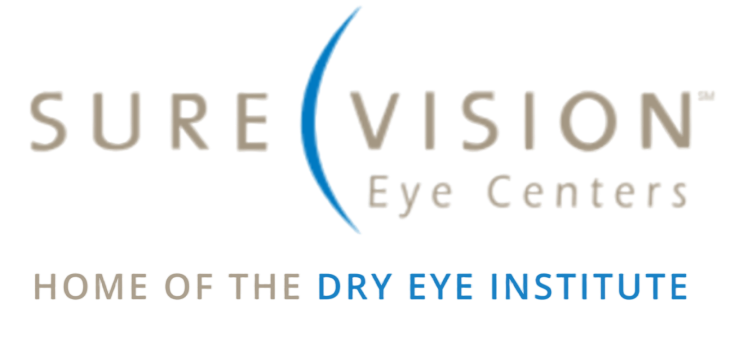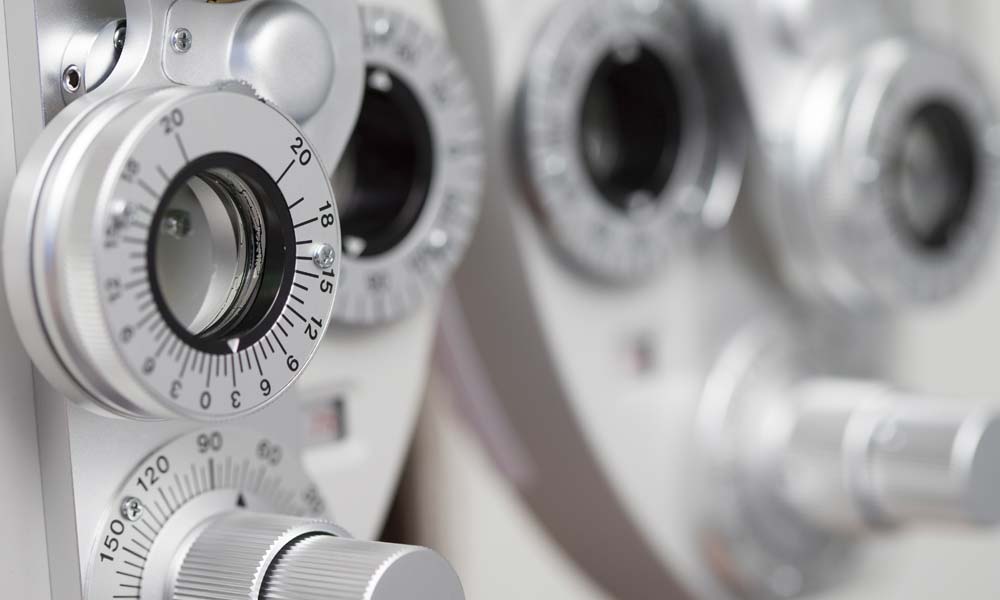
See the Difference Cataract Treatment Can Make
Cataracts occur when the eye’s natural lens becomes cloudy, making it harder to see clearly. This lens sits just behind the iris (the colored part of your eye) and helps focus light so you can see sharp, detailed images. While the lens is clear at birth, it gradually becomes yellowed or cloudy with age, which can lead to blurry, dim, or distorted vision.
Cataracts are one of the leading causes of blindness worldwide. Fortunately, with regular eye exams and timely cataract treatment, you can protect your vision and continue seeing clearly.
If you’re experiencing changes in your eyesight, contact the experienced eye doctors at SureVision Eye Centers for expert cataract care in the Greater St. Louis Area.
Cataract Symptoms
With very early or mild cataracts, you may not notice any vision change. However, as they progress, you may experience a variety of visual symptoms, including:
- Blurred distance or near vision
- Difficulty driving, especially at night
- Glare sensitivity from headlights or bright sunlight
- Halos or starbursts around lights
- Needing brighter light to read
- Fading, dimming, or yellowing of color vision
- Frequent changes in glasses or contact prescription
Cataract Causes & Risk Factors
For nearly all patients, cataracts develop from the natural aging of the eye’s lens, which causes a breakdown of proteins. This results in a progressive clouding of the lens. While most people experience this after age 60, cataracts can form earlier due to:
- Eye Injuries or past surgeries
- Diabetes
- Prolonged use of steroids or radiation therapy
- Smoking
- Obesity
- Exposure to UV light
- Genetic conditions (in rare cases, babies may be born with cataracts)
Are Cataracts Hereditary?
The vast majority of cataracts are believed to be a normal age-related change of the lens. While genetics may play some role in these changes, most cataracts are not believed to be a hereditary condition. There are, however, a number of genetic conditions that can predispose or even cause cataracts, but these conditions are usually quite rare and are not the cause of cataracts for the majority of patients.
When to See an Eye Doctor
Cataracts are typically a slowly progressive change that happens over the years and can be difficult to detect at first. However, they will eventually start to cause blurred vision, glare, or other visual symptoms.
If you’re experiencing vision problems that interfere with daily activities, such as driving, reading, or watching TV, schedule an appointment with the eye doctors at SureVision Eye Centers. We specialize in diagnosing and managing eye problems like cataracts and helping you decide the right time to remove the cataract through surgery.
Diagnosing Cataracts
At SureVision Eye Centers, we serve the Greater St. Louis Area using a multi-step diagnostic process to evaluate your vision and determine if cataract treatment is necessary:
- Visual Acuity Testing: A trained technician will assess the clarity of your vision in each eye by measuring the smallest letters that you can accurately read on the eye chart.
- Refraction: Using different lenses, we will determine the best glasses or contact lens prescription to improve your vision.
- Glare Testing: As glare from cataracts can cause a significant reduction in vision, your technician will also perform a Brightness Acuity Test to determine how much the glare from your cataracts is affecting your vision.
- Eye Examination: After dilating your pupils with eye drops, your eye doctor will examine the lens and overall eye health to assess the severity of the cataract. Together, you and your doctor will then decide if treatment is needed.
If cataract surgery is recommended, we’ll perform additional imaging and measurements to select the right lens implants and help you achieve your best possible vision.
Please note that, while our team at SureVision Eye Centers will streamline the entire process for you by providing precision diagnosis and treatment, this is a multi-step process. As such, please plan on allowing some extra time on the day of your visit for this full evaluation.
Cataracts Treatment Options
While early-stage cataracts may only require stronger lighting or an updated prescription, the only long-term solution is surgery. When glasses no longer help, surgery is the only permanent treatment to remove the cataract and restore clarity.
At SureVision Eye Centers, our eye doctors will help you understand your treatment options, including advanced lens implants that may reduce your dependence on glasses after surgery. We’ll guide you through each step to ensure the best outcome for your lifestyle and vision goals.
Frequently Asked Questions About Cataract Treatment
What happens during cataract surgery?
Cataract surgery is a safe, outpatient procedure in which an eye surgeon removes the cloudy natural lens and replaces it with a clear artificial lens implant. This helps restore clear, focused vision. The surgery typically takes 15 to 30 minutes per eye and is performed under local anesthesia, so you remain awake but comfortable throughout the process. Most patients can go home the same day and resume normal, non-strenuous activities within 24 to 48 hours.
Is cataract surgery painful?
No, cataract surgery is generally not painful. Your eye doctor will use numbing drops to ensure you don’t feel discomfort, and many patients are given a mild sedative to help them relax. You may feel some slight pressure or a sensation of movement during the procedure, but pain is uncommon. Some mild irritation or dryness may occur in the days following surgery, but this is easily managed with prescribed eye drops.
How long is the recovery time after cataract surgery?
Many people notice an improvement in their vision within the first 24 to 48 hours. However, full recovery can take about four weeks as the eye heals and adjusts to the new lens. During this time, it’s important to follow your doctor’s instructions, including using prescribed eye drops to reduce inflammation and prevent infection. Avoiding strenuous activity and eye rubbing will also help ensure a smooth recovery.
Will I still need glasses after surgery?
That depends on the type of lens implant you choose. Standard lenses typically correct vision at a single distance, so you may still need glasses for reading or close-up tasks. However, premium lens options, such as multifocal or toric lenses, can reduce or even eliminate the need for glasses by correcting for both near and distance vision, as well as astigmatism. Your eye doctor will help you choose the best lens based on your vision goals and lifestyle.
Can cataracts come back after surgery?
Once the cataract is removed, it cannot grow back. However, some patients may develop a condition called posterior capsule opacification (PCO), sometimes referred to as a “secondary cataract.” This occurs when the membrane that holds the new lens in place becomes cloudy, causing vision to blur again. Fortunately, this is easily treated with a quick, painless laser procedure called YAG laser capsulotomy, which restores clear vision almost immediately.
When should I consider cataract surgery?
If cataracts are interfering with your daily activities, such as reading, driving, or recognizing faces, it’s time to speak with your eye doctor. Early cataract treatment allows you to maintain a high quality of life and prevent further vision loss.
Is cataract surgery safe?
Yes, cataract surgery is considered one of the safest and most effective procedures in modern medicine. Complications are rare, and the vast majority of patients experience a significant improvement in vision.
Expert Care & Exceptional Results at SureVision Eye Centers
At SureVision Eye Centers, we combine expert care with advanced technology to deliver trusted cataract treatment for patients across Greater St. Louis. From diagnosis to custom lens implants to post-surgery care, we make the entire process smooth, personal, and focused on your best vision.

